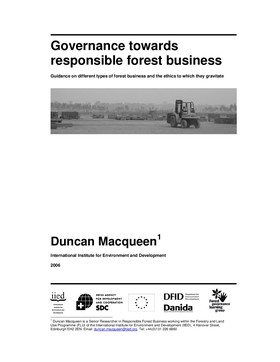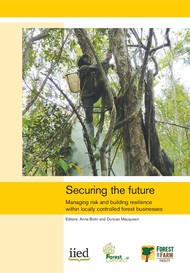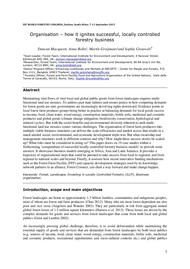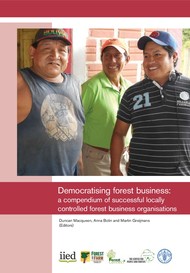Governance towards responsible forest business. Guidance on different types of forest business and the ethics to which they gravitate

This paper is for government authorities with responsibility for the forest sector. It aims to clarify what ‘responsible forest business’ might mean. It suggests broader ethical consideration of what business is responsible for, who business is responsible to and over what time frame business is responsible. The paper defines responsible forest business as “compliance with the set of values and principles held by local, national and possibly even
international interest groups over the period for which the impact of forest business lasts”.
Three main issues that affect responsibility are explored in turn: business forms, market signals, and government interventions.
The paper draws four major conclusions:
(i) It is the broad moral community of those affected by business impacts on the forest (not business itself) who might best define what ‘responsible forest business’ means in practice. Processes that govern forest responsibility should therefore be inclusive of different interest groups.
(ii) Some forms of business are more innately prone to responsibility than others. Certain types of small and medium forest enterprise (or enterprise associations)
have greater potential than larger corporate business forms. It is both possible and desirable to discriminate in their favour through company law, taxes and incentives.
(iii) Voluntary compliance with market standards such as forest certification is useful for validating and spreading good practice. But it has limited potential to transform those business forms that are less prone to responsibility.
(iv) Governance towards responsible forest business requires a stable policy environment, in which fair and transparent processes of resource allocation are wedded to clear and enforced laws governing use. Strong corrective action may be required to maintain equity of business opportunity and redress inequities of
scale.
The paper ends with some practical steps to improve governance towards responsible forest business.
Cite this publication
Available at https://www.iied.org/g00371






